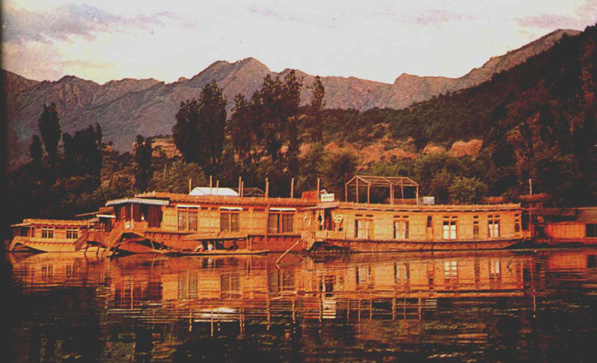|
Milchar
October-December 2002 issue
|

|
House Boats on Dal
Lake in Srinagar. Credit for introducing
House Boats in Kashmir goes to Pt. Narain Das, father of Swami Laxman ji.
|
|
 |
|
Reflections
How
the History is made?
.. Krakal
While travelling to Jammu by the
Swaraj Express, do you know the snippets I picked from the long leisurely
discussions we had all along the way? Sample:
1) Why Kashmiri Hindus were all Brahmins?
Were other casts missing? No. The Kshetri (the fighters) under pressure
from the invaders mostly migrated to Kishtwar and Bhaderwah side. So the
Kashmiris in that part are mostly Kshetris. Brahmins migrated to other
parts of the country. Lower classes got converted as their physical, mental
and economical strength did not allow them much options.
2) Why Shivratri is celebrated by KPs one
day earlier? What is Salaam? To break the religious and the spiritual moors
of KPs which kept them alive despite extreme pressures and cruelties inflicted
on them. The famous story of when Jabbar Khan wanted to shift Shivratri
to June so that benefit of snow on the occasion was not available. That
year it miraculously snowed on this occasion in June. Other dictum was
to make them to come to Durbar on the Shivratri day to 'Salaam' (to pay
obeisance to the Nawaab). This was to divert them from usual Shivratri
prayers. To meet the situation, they decided to do the prayers on the previous
night itself. It therefore happens to be 13th day of moonlit fortnight
and not 14th as the rest of the country.
3) Why Kashmiri Pandits offer saltish Tahar
to gods when the Hindu tradition is to offer sweets? It is said that the
tradition of Tahar is from Central Asia. It used to be offered to gods
in Kashmir without salt. Salt would be added to Prasad later to make it
palatable. In course of time, the Tahar offered also became saltish.
4) What is 'Ramgodha' and 'Vagur' at Shivratri? Vagur, from Wahi Guru - it is from Sikhs. This addition to Shivratri paraphernalia
was to please Sikh rulers. Similarly, Ramgodha was in deference to Dogra
rulers, who worshipped Ramji.
| |
 |
|







